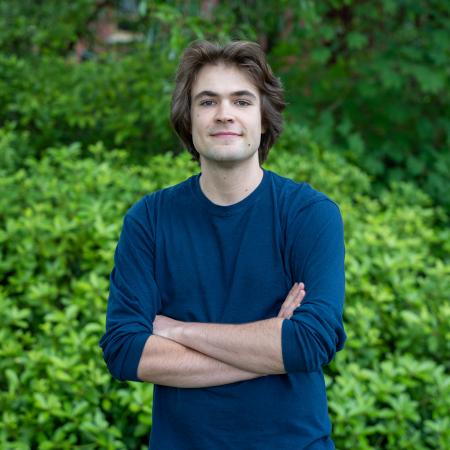Mathematics Professor Juan Restrepo has been elected a 2019 Fellow of the American Physical Society(APS), the world’s second largest organization of physicists.
Election to Fellow of APS is a rare and highly prestigious honor that is conferred upon no more than one half of one percent of the society’s membership. This year, 168 fellows from all over the world were selected and recognized for their contributions to physics. Fellows are chosen on the basis of: outstanding physics research, important applications of physics, leadership in or service to physics, or significant contributions to physics education.
Restrepo was nominated for the honor by the Topical Group on Physics of Climate. His Fellowship citation commends him for “advancing the understanding of wave dynamics and uncertainty quantification in the climate system.”
Restrepo joins a distinguished roster of APS Fellows in the College of Science at Oregon State University. He is the second mathematician at OSU to be elected a Fellow of APS. Professor of Mathematics Tevian Dray was elected an APS Fellow in 2010. Other APS fellows include OSU physicists Janet Tate (2015), Henri Jansen (2005), Corrine Manogue (2004) and Heidi Schellman (1999).
“I’ve had great scientific collaborators over the years and they are also responsible for my receiving this honor. Becoming Fellow of APS is obviously gratifying,” said Restrepo. “Professionally the award is very meaningful to me because APS is recognizing that anthropogenic climate change is a major existential crisis and that tackling this issue is a pressing scientific priority.”
Restrepo has received several prestigious honors and awards in the recent past. In 2018, he was elected a Fellow of the Society of Industrial and Applied Mathematics (SIAM) for his exemplary contributions to the mathematical and computational modeling of the ocean. He received SIAM’s Geosciences Career Prize in 2017 in recognition of his substantial impact in computational geosciences.
Restrepo specializes in applied mathematics research studying problems at the crossroads of mathematics, geophysics and oceanography. His research focuses on geophysical fluid dynamics, statistical mechanics, scientific computing, and uncertainty quantification. His research encompasses two distinct areas:
- The application of data science to understanding complex non-equilibrium physical and human systems and to the development of forecasting tools for these systems, and
- The role of ocean and ocean transport in climate dynamics and in nearshore processes, such as oil-spill dynamics, wave breaking dynamics, wave-generated transport and the role of oceans in global climate.
In an interview with SIAM News, Restrepo discusses his interdisciplinary research in applied and computational mathematics in the several fields of geosciences:
“My work on oceans involves deciphering how waves contribute to Earth’s circulation and how that affects ocean transport of nutrients, pollutants, and heat. In climate science my work has suggested important ocean pathways critical to the carbon cycle. In the nearshore, my work has demonstrated the effect of waves on shore connected sand ridges, on a possible explanation for the slowing down and parking of pollutants bound for the beach. The transport model for ocean oil spills my team is developing will someday help abate oil spill disasters.”
Restrepo’s teaching broadly covers the areas of numerical analysis and scientific computing, as well as applied analysis. As an advocate of diversity in science and mathematics, Restrepo has mentored numerous students from underrepresented groups.
He received his Ph.D. in physics from Pennsylvania State University in 1992. Prior to coming to Oregon State in 2014, Restrepo was a mathematics professor at the University of Arizona with appointments in the Department of Physics and the Department of Atmospheric Sciences. At OSU, he has courtesy appointments in Statistics, Electrical Engineering and Computer Science and Physical Oceanography.
APS has a diverse roster of fellows drawn from different fields such as mathematics, materials science, chemistry, biochemistry, mechanical, electrical and chemical engineering, in addition to physics. Their cross-disciplinary work is in a broad spectrum of fields, encompassing both core subject areas and their applications to physics.
APS publishes more than a dozen scientific journals, including Physical Review and Physical Review Letters and organizes more than 20 science meetings each year. Founded in 1899, APS is one of the oldest non-profit membership organizations working to diffuse and advance the knowledge of physics. The organization represents more than 51,000 members, including physicists in academia, national laboratories, and industry in the country and throughout the world.




